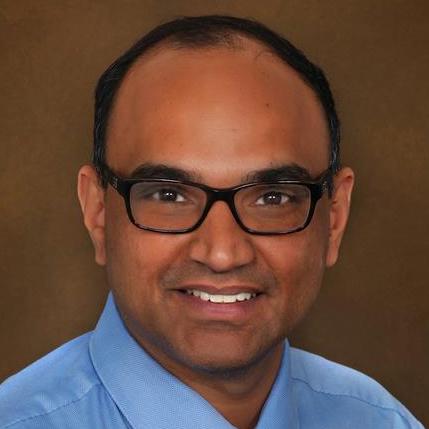Funding from the Paul R. O’Hara Seed Grant Fund at the University of Colorado Anschutz Medical Campus will allow CU Cancer Center member Akshay Chauhan, MD, to explore new methods of detecting and treating esophageal cancer.
“While overall cancer survival has improved, the prognosis of esophageal cancer continues to be dismal,” says Chauhan, associate professor of GI, trauma, and endocrine surgery in the CU Department of Surgery. “Despite recent improvements in screening and therapeutic strategies, esophageal cancer is often diagnosed in its advanced stage, underscoring a dire need to identify biomarkers to direct targeted early treatment.”
Target on glypican-1
Chauhan’s previous research identified the protein glypican-1 (GPC-1) as a marker for aggressive, advanced esophageal cancer. GPC-1 was first discovered in pancreatic cancer, but Chauhan thought it might have potential in esophageal cancer as well.
“By now, man has discovered practically everything,” Chauhan says. “No stone is left unturned. All we're doing is mixing and matching now. We are joining certain chemicals together to increase their effectiveness.”
GPC-1 is abundant on normal cells in the stomach and the esophagus, Chauhan says, but it is not typically found at the junction between the two organs, where esophageal cancer usually develops. The protein is expressed in esophageal cancer cells, however, making it a likely biomarker for the disease.
“If somebody has an endoscopy and GPC-1 is found, the doctors may then be more aggressive in follow-up so that it doesn’t develop into cancer,” Chauhan says.
Shutting down the powerhouse
Chauhan’s previous research also found that eliminating GPC-1 — a protein that cells use to communicate with one another — shut down the mechanism of cancer viability.
“That means all the mechanisms that make the cancer cell stay alive, the power is shut down,” he says. “When you shut off the powerhouse, the cells don't have anything to metabolize.”
In his Paul R. O’Hara Seed Grant-funded research, Chauhan plans to test the effectiveness of the monoclonal antibody Miltuximab in targeting GPC-1 in esophageal cancer. The drug already has proven safe and efficacious in preclinical studies in cervical and prostate cancer. If Miltuximab has the effect he believes it will, the next step would be to add the antibody to a chemotherapy regimen to improve its effectiveness in treating esophageal cancer.
“This is just the tip of the iceberg,” he says. “This is exactly where my research is going, is that we can use this as an adjunct and synergize it with other medications to boost the effect of chemotherapy. No single medication is going to be effective; you need a combination therapy.”
Meaningful gift
The Paul R. O’Hara Seed Grant Fund is part of a $20 million donation to CU Anschutz from Katy and Paul Rady to fund esophageal cancer research and treatment. It is named for Katy Rady’s brother, Paul O’Hara, whose esophageal cancer was treated by CU Cancer Center specialists. Chauhan says receiving a grant from a fund named for a patient makes it all the more meaningful.
“The essence of any seed grant is to come up with hope,” he says. “If you look at the statistics, esophageal cancer is not thoroughly explored. We still have so much to learn about the biology of this cancer. We have not even uncovered 1% of the biology of this tumor. This foundation is laying the path for the development of future medication.”




